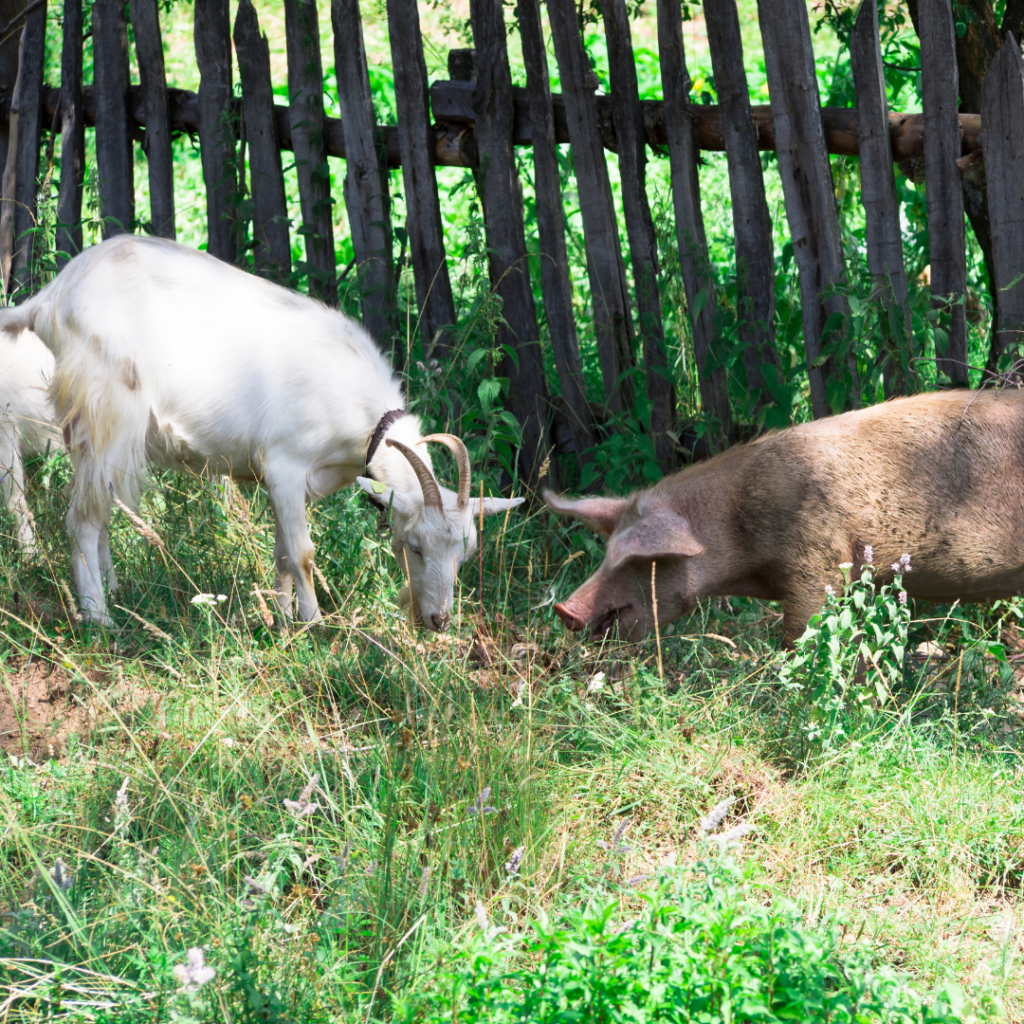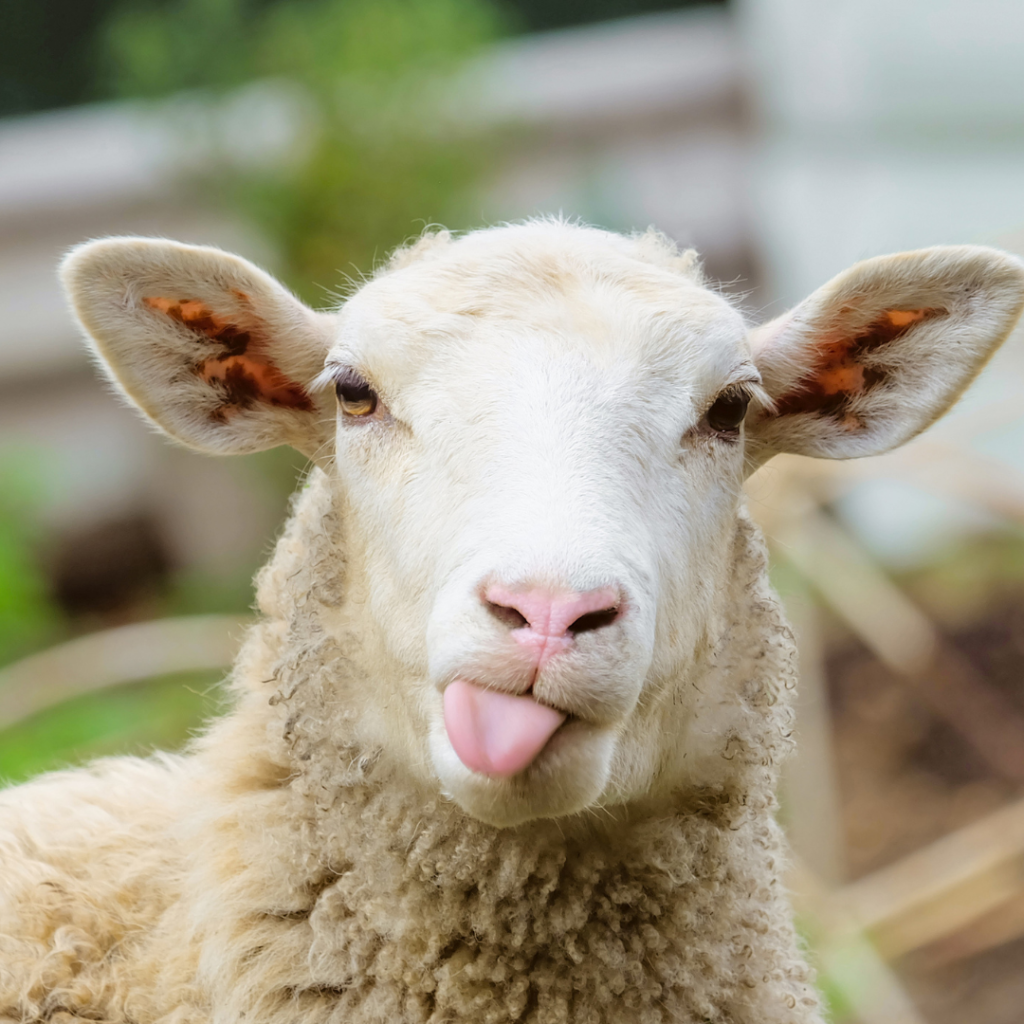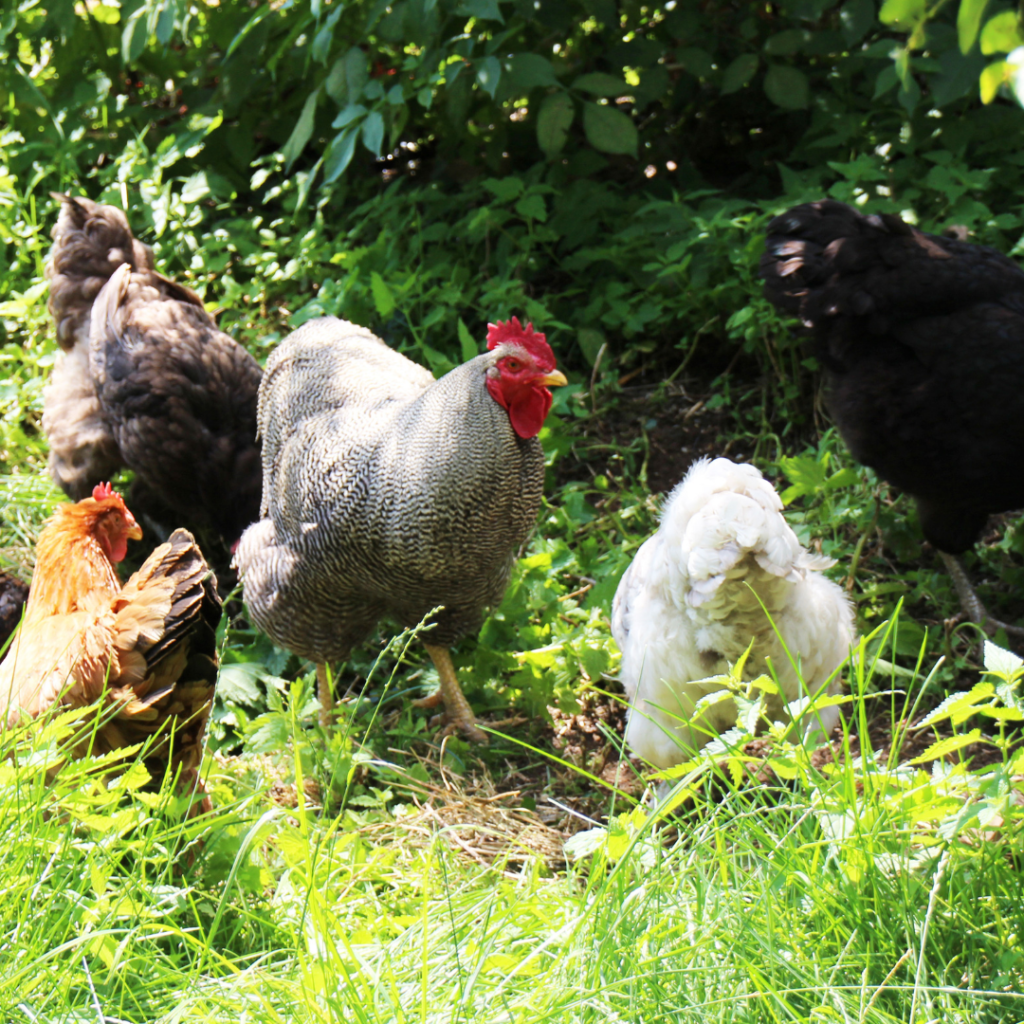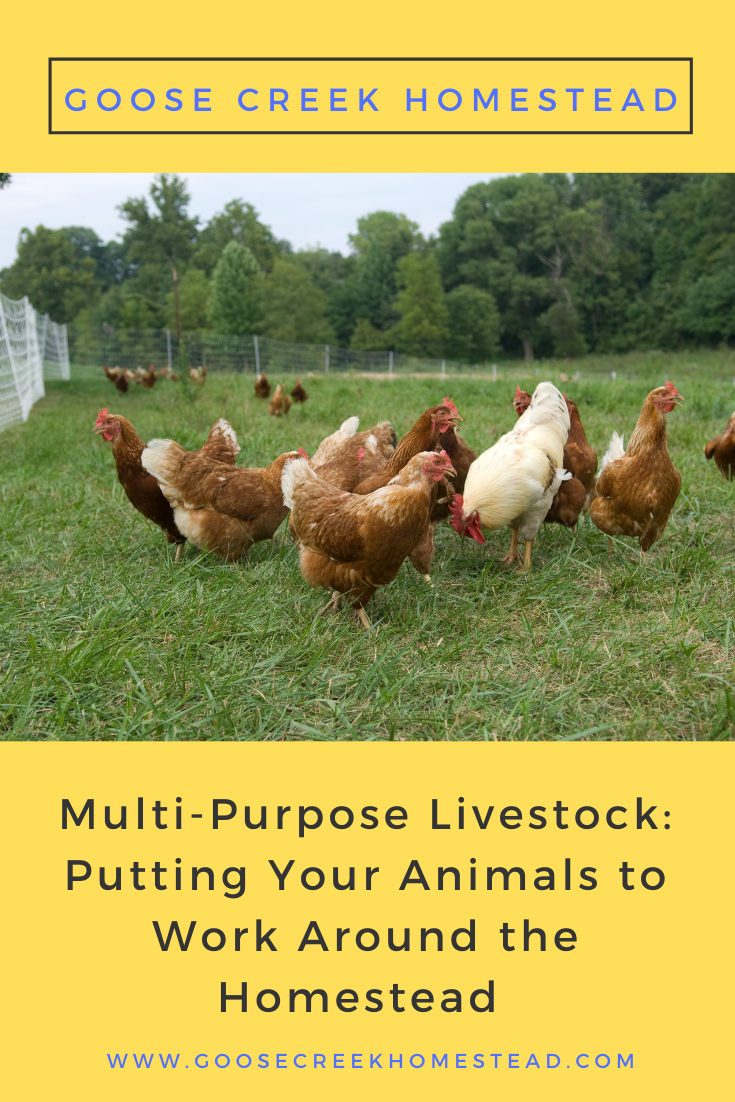Putting your animals to work around the homestead enriches it in a variety of ways. When appropriately managed, multi-purpose livestock, soil, and landscape can all thrive.
Back when lawns first became fashionable, lawnmowers hadn’t even been thought of yet. If you didn’t have sheep to mow the grass, you had to pay someone to come in and scythe it down. Over time, gas-powered lawnmowers and well-manicured grass have become the norm… but it’s not too often that you see sheep doing the mowing. And it’s really too bad, because sheep do a great job of keeping grass neat, they don’t require gasoline (or any other fossil fuel), they fertilize as they mow, and they come with some pretty sweet side benefits in the form of meat and wool, which you’re not going to get from any conventional lawnmower.
And, sheep certainly aren’t the only type of multi-purpose livestock for the homestead. All kinds of animals have their own natural habits and abilities that can be very useful. For example, pigs can do the work of a plow. Goats are excellent for clearing away brush and weeds. Geese are great lawnmowers, as well as homestead security. And, ducks are great for pest control because they eat bugs and slugs. The list goes on and on.
Putting your animals to work around the homestead has many benefits, but it will also involve some creative thinking and a little work on your part. Unlike your conventional farm equipment, animals can’t just be stored away until you need them. They require food, water, shelter, health care, and fencing to keep them contained. So, are multi-purpose livestock worth the extra hassle?
The Benefits of Putting Your Animals to Work Around the Homestead
When you integrate working livestock into your farm, it becomes more like a natural ecosystem where plants and animals coexist. Many homesteads raise both crops and livestock. With some smart planning, you can reduce the amount of work you have to do yourself and the amount of fertilizer you have to purchase for your crops with multi-purpose livestock.
Think of using animals for more than one purpose around the farm as stacking functions. We usually raise livestock for meat, eggs, milk, or fleece. But even their manure can be worked into the garden and fields as fertilizer. They can also be used to control weeds, or you can graze them on your cover crops.
How to Put Your Multi-Purpose Livestock to Work Around the Homestead
Let’s say you have a diversified farm with some pastured poultry, a couple sheep, a couple pigs, one or two Dexter cattle, and a few miniature dairy goats. Piglets who are being raised for the freezer can be used to clear unwanted roots and vegetation. The goats can remove brush and weeds while providing milk and meat for your family. Your pastured poultry provide eggs and meat while keeping pest populations under control. Dexter cattle provide meat and milk, as well as fertilizer and vegetation control. And, as we’ve already mentioned, sheep can fill the freezer and provide wool, while they keep the grass mowed.

Let’s look at how you can put your livestock to work in more detail:
· Sheep as Multi-Purpose Livestock
Sheep are fantastic multi-purpose for controlling vegetation. One way to put them to work is to keep them in portable electric fencing and move them around the homestead to keep overgrown brushy areas under control. If you graze them in a confined space, they can clear it in no time, and you can move them on to the next spot. They love to eat tender weeds and grass, so you could utilize rotational grazing and use them as lawnmowers.
If your property is small, look into smaller breeds of sheep like the Olde English Babydoll Southdown. These little cuties only get about 24-inches tall, they’re very gentle, and they won’t destroy trees or shrubs as long as you rotate their grazing area regularly.

· Piggy Plows and Goat Clearers
If you’ve got some tough vegetation to keep under control, like brambles, kudzu, or woody shrubs, you’re going to need something a little more robust than sheep. Goats are very useful in this case. They’ll get all sorts of woody plants and noxious weeds under control, including poison ivy and poison oak. Some enterprising individuals are even hiring their goats out for land clearing services.
Boer goats are excellent meat goats, and they’re also superb land clearers, but they do need lots of space and sturdy fencing. For smaller properties, consider miniature dairy goats like Nigerian Dwarfs or Mini Nubians. They’ll still do a great job of clearing unwanted vegetation, and you’ll get delicious milk for your family.
Pigs can even clear land that’s too much for goats. They’ll dig up stumps and roots if you toss corn or acorns into holes where you want them to root. They may even fell entire trees if you concentrate your efforts. Pigs are also great for composting the manure of large animals like cattle or horses, which is especially useful when the ground is frozen. Simply pound some holes in the pile and put corn down the holes; the pigs will turn the manure looking for the corn.
Some farmers also graze their pigs on cover crops and put them to work clearing fields that will be used for planting crops. They’ll get rid of invasive weeds like quack grass, all the way down to the roots. A word of caution, though… pigs are better for sandy, lighter soils. They’ll compact heavy clay soils quickly.
And, of course, pigs don’t just root where you want them to. Make sure you confine them where you want the ground turned. They’ll rototill the entire area if you leave them there long enough, no matter where you put them. Rotational grazing is a great way to keep them from doing too much damage in one place.

· Multi-Use Pastured Poultry
Poultry won’t clear the land as larger animals will, but they’re still handy. They scratch and forage, eating insects and weed seeds and fertilizing as they go. They’re small and productive, making them an excellent choice for everything from tiny urban homesteads to large farms.
Keep a few hens near your garden, and they’ll eat all your food scraps, pests, garden waste, and weeds while providing eggs for you to eat. Move them around your orchard and garden in the fall, and they’ll do your clean up for you, add fertilizer, and perform pest control. Of course, this doesn’t work during the growing season because they’ll eat your crops right along with everything else.
Pastured geese are great for mowing the grass without disturbing the roots, and they’ll alert you when anything’s amiss. Ducks are great for pest control and aren’t nearly as destructive in the garden. And guinea fowl will feed themselves on ticks, mosquitos, Japanese beetles, and other pests. The possibilities are almost endless when it comes to pastured poultry.
The Takeaway
Putting your animals to work around the homestead enriches it in a variety of ways. When appropriately managed, your animals, your soil, and your landscape can all thrive. Before you know it, you’ll have your own self-contained ecosystem right on your homestead.




